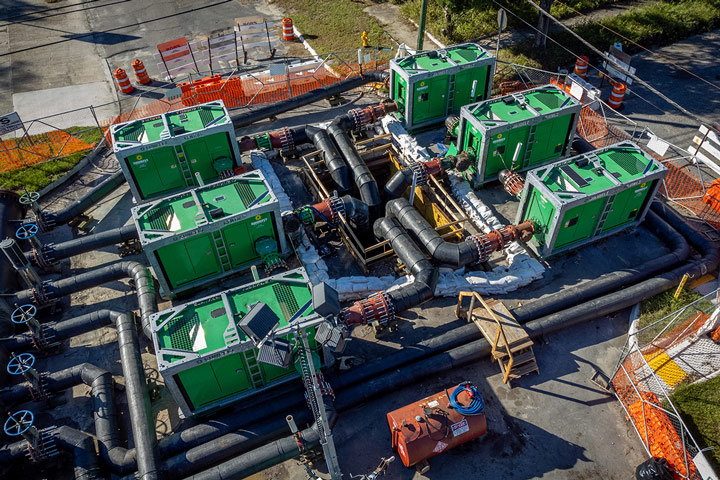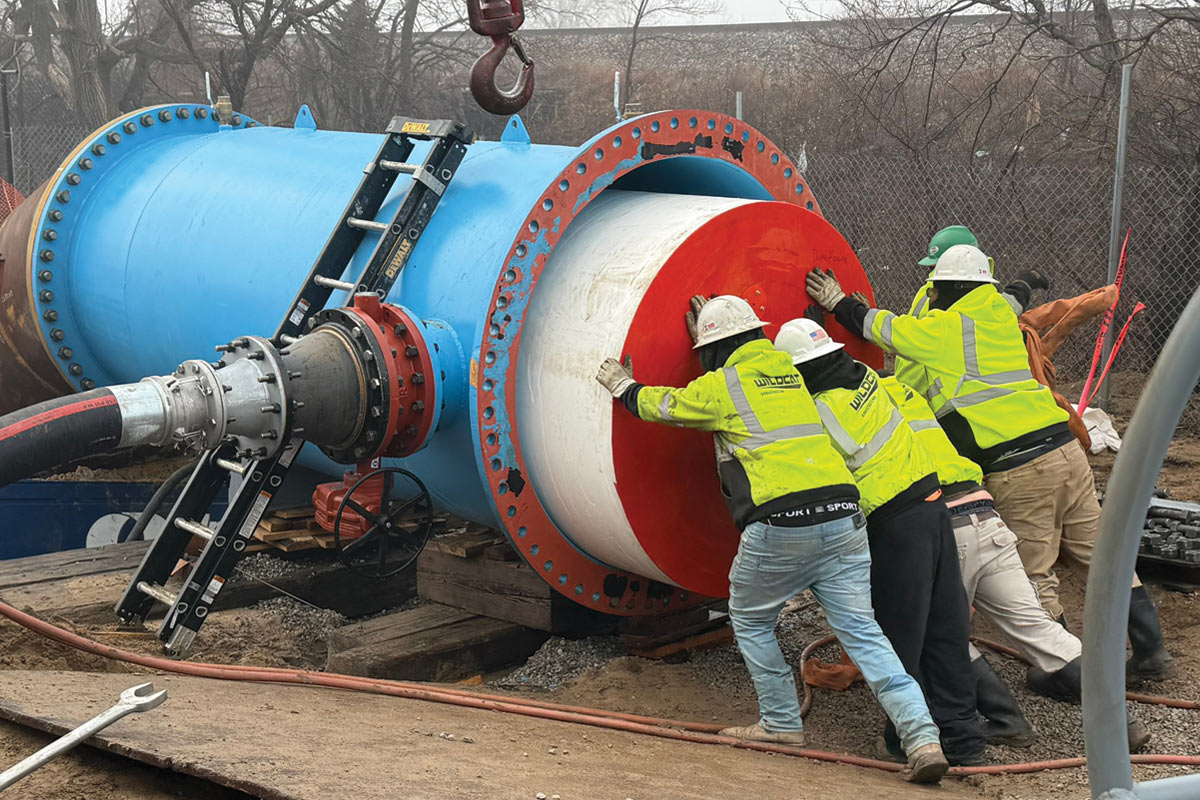
How to Select a Recycling Sewer Cleaner
Understanding your options in today’s combination sewer cleaner market can be a daunting task, let alone considering the possibility of a water recycling sewer cleaner. In the past few years, the market has seen an upward trend in the purchasing and utilization of water recyclers in place of traditional combination trucks.
There are two options to consider when purchasing a water recycler: add a recycling component to a traditional combination truck or purchase a purpose-built water recycler. It is important to understand what you are getting and to set your expectations accordingly.
RELATED: Welcome to Pipe Cleaning PRO
Bolt-On Water Recycler System
The bolt-on system is similar to the addition of aftermarket accessories in the automotive industry that allows a product to do additional functions or perform outside of the intentional design for the vehicle.
The concept is great, trying to provide the customer with additional features by adding a filter or series of filters to a traditional combination truck. The cost to the manufacturer is low and the cost to the customer is lower than that of a purpose-built recycling truck. However, there are definite drawbacks to this option. In the field, users comment that bolt-on recyclers are not effective in the removal of grease or fine silts, as the filters used become blinded and easily clogged with material.
Let us consider this option, ignoring the issue regarding the filtration of grease. If no grease is present, what is the smallest solid that can be filtered by a bolt-on recycling component? What is the parts per million (PPM) of solids in the system that remain after the filtration process is complete?
Most bolt-on systems try to filter down to 100 microns (the consistency of fine beach sand – see reference chart pg. 32). Fine grains of sand are pretty small, yes. However, given the large volume of water being recycled, you have to consider the PPM of material going through the system. Even a moderate quantity of sand-size material can be detrimental to parts and components that are downstream of the filtration system. Most standard combination cleaner trucks aren’t designed to handle the number of solids that can make their way past the filtration system with add-on recycling attachments.
While bolt-on systems are less expensive than buying a purpose-built unit, the cost of constantly replacing filters and the wear and tear these systems put on their machines leads to a higher upkeep cost than most customers might realize. That said, some bolt-on options can produce higher quality recycled water than some lower-end purpose-built machines.

Purpose-Built Water Recyclers
It’s true…purpose-built water recyclers usually come with a higher purchase price. This is largely due to the added development costs and quality components used in the manufacturing process. These recyclers are generally more durable and efficient than their traditional counterparts with recycler add-ons, at the cost of a higher price tag.
Additionally, purpose-built recycling units (tend to) recycle water more efficiently than the bolt-on counterparts. These units are engineered with the capability to recycle at a quicker rate with a lower solid size, as well as lower PPM. This means less wear on the machine and longer service life than a traditional combination sewer cleaner truck with an add-on system.
RELATED: WWETT Show 2020 Preview – PROs Ready to Convene in Indy
There are two different schools of thought when it comes to purpose-built water recycler units; active and passive. Active filtration involves using replaceable filters to actively separate fats, oils, grease and other solids from the water. Passive separation uses primarily gravity (like settling tanks) or centrifugal forces (most commonly seen in filtration cyclones) to filter the water in place of replaceable filters.
In a well-engineered machine, both active and passive filtration are equally effective, and many recycler systems utilize both filtration and separation in their design. However, like what we mentioned previously, any system utilizing filters will generally have issues with grease and silt which adds to upkeep and maintenance costs.
The recycled material from a purpose-built unit should not be abrasive, unlike beach sand, and largely decreases the possibility of causing damage to downstream components. The GENESIS Recycler from Cappellotto by Sewer Equipment uses a passive separation approach, which slows the water and allows for natural separation of solids to occur. This effective separation process, combined with centrifugal cyclones, makes it possible for purpose-built recyclers to break down solids to such a small consistency.
If you are in the market for a combination sewer cleaner and considering a water recycler to increase efficiencies and significantly decrease time spent on dumping and filling, be sure you understand what option is best for your business.
Ask the hard questions of your salesperson and make sure you know what you are getting and what to expect from your unit in the future.
Guy Leslie is a product support specialist for Sewer Equipment Company of America.




